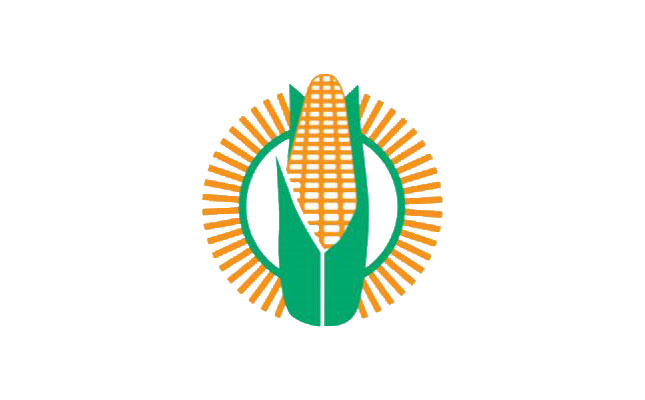‘Our main goal is a better life for all South Africans, black and white, farmer and farm worker. The success of the Reconstruction and Development Programme (RDP) requires a partnership among all social structures. Few other sectors can be as crucial in this as the agricultural industry: for it is on your shoulders that the food security of the nation rests.’
These were the words of the late former president Nelson Mandela, who spoke at the opening of the 90th South African Agriculture Union (SAAU) congress in Cape Town on 18 October 1994. Mandela said that government was committed to creating conditions in which agriculture could prosper. Working ‘in partnership’, government and the sector could promote the restructuring of the sector, improve the productivity and training of workers, and create opportunities for those who had been excluded in the past.
Stressing that before the elections, he had had two rounds of discussions with SAAU, he said: ‘I can assure you that government sees a healthy agricultural sector as crucial for the continued well-being of South Africa… ‘I give you the assurance that government will consult with agricultural unions… ‘We should, as a nation, be committed to non-racialism and equality, be working together towards a single, unified organisation representing the agricultural community as a whole.’
Mandela said that government was committed to land restitution because the the need for corrective measures to deal with the consequences of past injustices was overwhelming. ‘But,’ he added, ‘it is equally important that new injustices are not created or production capacity disrupted… You who have already had success in the high-risk agricultural sector can make a significant contribution to the successful establishment of new farmers by sharing your knowledge and experience with them.’
ANC’s blueprint for agriculture
These words were widely welcomed, and seen as the blueprint for the ANC’s agriculture and land reform policy. After 20 years, it is fitting to see if much of his vision has been realised. The RDP programme has changed shape and the original vision has become blurred; not much has happened with regard to the partnership between social structures. Food security still rests on farmers’ shoulders, but many in government circles do not take this seriously.
This will have to be addressed. Much more than legislation is necessary to create the circumstances for restructuring and progress in agriculture. The wider partnership never took root. A climate of trust and co-operation will have to be promoted to create partnerships and correct the wrongs of the past.
Little has been done to promote the financing of land. A ‘one-stop’ financing model with low interest rates and easy access to credit, and even the re-establishment of an agriculture credit council, has been discussed, but nothing has come of it. Mandela’s vision was to promote land ownership and make the means available to develop it. Instead, government is giving ownership of land to the state. Agricultural unions and new farmers long for land ownership.
The Mandela and Mbeki eras saw regular government interaction with the sector, which even led to the establishment of an agricultural sector plan. Since 2009, there has been a dramatic decline in interaction on a presidential level, which is not in keeping with the Mandela vision of regular consultation, and of agriculture’s crucial role in the sustained well-being of the country. That level of interaction should be re-established. There also has not been much progress in the creation of a united agricultural organisation.
Land reform
The implementation of land reform in its current form has the potential to disrupt production capacity and create new injustices. This is especially true if unconstitutional, chaotic and unworkable ideas, such as Minister Gugile Nkwinti’s 50/50 plan, are implemented. This denies the recognition of land ownership which Mandela promised 20 years ago.
The Property Valuation Bill, Land Management Commission Bill, Extension of Security of Tenure Amendment Bill, and the new Land Restitution Act, will all have an impact on the farming sector. This is worrying. From the start, organised agriculture gave its commitment to mentor newcomers. The Department of Agriculture, Forestry and Fisheries (DAFF) has made only limited use of this. There are, however, many farmers who make their own plans and implement them, without state involvement.
Redistribution
According to the Department of Rural Development and Land Reform (DRDLR), 4,36 million hectares were redistributed between 1994 and December 2013. Between April 2009 and December 2013, government spent R7,93 billion buying 1 277 farms (1,24 million hectares). These are rented mainly to black farmers and represent 28,5% of the total land redistributed.
Of South Africa’s total 122 081 300ha land area, 14% is government-owned, 79% privately owned, and 7% unaccounted for.
No official information has been available on black private land ownership since registration of race on title deeds was abolished. But data from University of the Western Cape’s Institute for Poverty, Land and Agrarian Studies shows that 67% of South Africa is ‘white commercial agricultural land’ and 15% comprises ‘black communal areas’, which are mostly state-owned. The state owns a further 10%, which includes conservation areas. The remaining 8% are urban areas.
Restitution
According to DAFF’s 2013/2014 annual report, government bought 3,07 million hectares at a cost of R17 billion between 1994 and March 2014, and spent a further R8 billion on financial compensation for 1,8 million people. A total of R4,1 billion went to development assistance, making the total spend on restitution about R29,2 billion. Between 1994 and March 2014, a total of 77 610 land claims were finalised. This leaves 8 471 claims outstanding, not taking into account new claims lodged since the window period reopened. According to DAFF, thousands of new claims have already been submitted, but most have been lodged by city dwellers.
The low number of finalised claims has led to large-scale hardship and unfulfilled expectations. When DRDLR published the so-called 50/50 proposal, government and ANC structures contradicted each other in their reaction to it. This was clear in statements such as, ‘The minister wrote the document, the ANC didn’t know about it’ and ‘The ANC does not support expropriation without compensation’.
DAFF minister, Senzeni Zokwana, is also on record as saying that it was only an attempt to get the sector talking about it. The sector should beware: this ‘double speak’ is sometimes done on purpose. The publication of such a controversial document raises expectations that are unattainable. Already, it has resulted in problems for the agriculture sector. Government is losing the trust of the sector, as there is a perception it is not acting in good faith.
In addition, Nkwinti has admitted that 90% of land claim farm projects have failed. With billions of rands having been spent, the time has come to reconsider the aims of DRDLR in terms of land restitution.
Employment
The National Development Plan aims to create a million jobs in agriculture by 2030. But since the 1970s there has been a decline from 1,3 million workers to the current 640 000. In 2013, agricultural debt was at its highest-ever level: R102 billion.
Thousands of hectares, such as the more than one million hectares of high-potential, mostly irrigable land in communal areas and the once-flourishing Qamata and Ncora irrigation schemes in the former Transkei, can be redeveloped by government with the help of the sector. They can be turned into large-scale developments that can lead to thousands of jobs, poverty alleviation, food security, infrastructure development and more.
Mind-shift needed
Government needs a mind-shift. It calls on Mandela’s legacy when this is convenient, but then invents measures that are in opposition to this vision. The 50/50 document is unacceptable and must be retracted. Government must meet with organised agriculture to negotiate plans that will have a far-reaching impact.
Hurdles remain, nonetheless. Government tends to place requirements on the table before talks begin – it wants to determine the agenda without consulting other parties. Government also assumes that other institutions want to negotiate with it. Finally, it refuses to offer any political rewards for this negotiation. It is clear that government does not understand negotiations in the intricate South African context, where participants are invited to be actively involved in establishing the agenda, and are given time to discuss their queries. This creates trust and co-operation.
A great deal of mistrust will have to be removed and a climate conducive to negotiations fostered. To achieve this, parties must negotiate according to a declaration of intent, where broad goals are set. Negotiators should have the personality, capability and mandate to negotiate, as well as the trust of other participants and the realisation that it is possible for both parties to leave the negotiations satisfied.
A word of caution, however. We must be honest in our efforts and aware of whom we are negotiating with, because ‘double speak’ is the norm nowadays. The expression, ‘a cheetah doesn’t change its spots’ is unfortunately true in this case. All agreements must therefore be notarised and be binding.
Email Salam Abram at [email protected].













